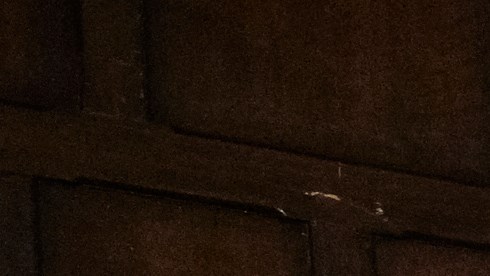The TV recession – how did we get here and what’s going to happen next?
&cropxunits=490&cropyunits=326&maxwidth=1600&maxheight=900&width=1160&height=653&quality=90)
This session is part of the Connect & Inspire strand which offers a variety of sessions, from in-person networking and online roundtables to in-depth case studies, designed to promote the sharing of knowledge and the building of relationships across Unscripted TV.
Last year was the most challenging and brutal time for the TV industry in decades, with as many as three quarters of freelancers out of work, prompted by a significant downturn in commissioning especially in unscripted. So far 2024 hasn’t been that much better with broadcasters and producers announcing staff job cuts and continuing economic pressures on the industry. This updated recession session will seek to explain all the factors which created this perfect storm, reveal the results from an exclusive Screenskills industry survey and latest data from recruiters to give a picture of the state of the industry now and assess whether this is just a temporary downturn or longer term change.
Faced with this changing TV work landscape, an accompanying second session this week 'The new freelance world - from TV to content creation and beyond' on Friday the 17th May at 10-11am, will look at opportunities to diversify in the screen sector beyond traditional TV production with a panel of expert contributors who are doing that.
Who it's for
From runners to executive producers no one has been immune from this recession, so this session is aimed at both freelancers and staffers across all levels of the unscripted TV industry – researchers, assistant producers, PCs, PMs producer/directors, series producers etc - who have struggled for work in the last year.
The majority of the Unscripted Skills Fund (USF) online short course offering is for those at early career stage and above. As a result, we generally require applicants to have at least three credits (unless working in a traditionally uncredited role). If you strongly feel you would still benefit from the training, please email USF@screenskills.com so we can assess if an exception should be made.
We are committed to ensuring all our courses are accessible to everyone. Please email the above address if you have any access requirements and we will be delighted to help, be that clarifying the form such interaction is likely to take or discussing reasonable adjustments.
What it covers
This session will offer an authoritative and informed take on what has been happening to the industry and what we can expect next…
- How did we get here? The dramatic slowdown in work for freelancers and staffers across the TV production industry has happened without much warning or explanation to everyone affected. What happened to change everything so quickly? This session will put all of that into context, looking at the temporary and long-term factors which have come together at the same time from the US writers strike to global economic downturn, pressures on streamers and terrestrial broadcasters at home and long-term seismic change to what and how we consume content. If we understand what has happened, we will be better placed to respond.
- Sharing our experiences: The combination of the swiftness and severity of the recession and a post COVID WFH culture has left many in the industry lonely, isolated and demoralised. So this session will offer a valuable and positive opportunity to share individual experiences and reveal results from an exclusive new Screenskills industry survey.
- What can we expect next? Is there going to be a jobs recovery or do we have to adjust to a new normal? With a confusing picture right now, we’ll aim to give an up-to-date view and forecast with our exclusive freelancer survey, latest data from recruiters and insights from broadcasters, streamers and commissioners. Economic factors may eventually ease pressures on broadcasters here, but when? What next for streamers? How will the continuing shift from demand to linear affect jobs? How will AI effect our industry? Will long term shifts in consumer behaviour change what we make? What’s the new normal? We’ll seek to offer clear guidance on what to expect.
Speaker
Mark Hill has worked in unscripted TV for over 30 years, running TV production businesses for the last two decades, launching RDF from scratch in Bristol and running BBC Factual there too. He has created and showrun multiple long-running series and worked across most unscripted genres in his career. He now works as a consultant advising both small indies, creative companies and senior leaders on managing their businesses and careers as well as still working as an active executive producer and development consultant.
How to apply
This session will take place online via Zoom. Click ‘apply now’ at the top of the page and follow the instructions to apply for your place: you must login or register before you are able to complete your application.
If you are no longer able to attend, we ask you to please use the 'decline ticket' function on the right hand side of the page so that we can release your place. Our sessions are often oversubscribed, so we’d like to give other freelancers the opportunity to fill available spots. Thank you for your consideration.
This session is supported by the ScreenSkills Unscripted TV Skills Fund which invests in training for the unscripted workforce thanks to contributions from broadcasters, SVoDs and production companies.
This course would normally cost participants to attend but, thanks to this support, we are able to offer it to you for free. If you fail to attend, we reserve the right to request reimbursement of costs, unless your place can be taken by someone else.

&cropxunits=444&cropyunits=444&maxwidth=600&maxheight=600&width=150&height=150&quality=80&scale=both)